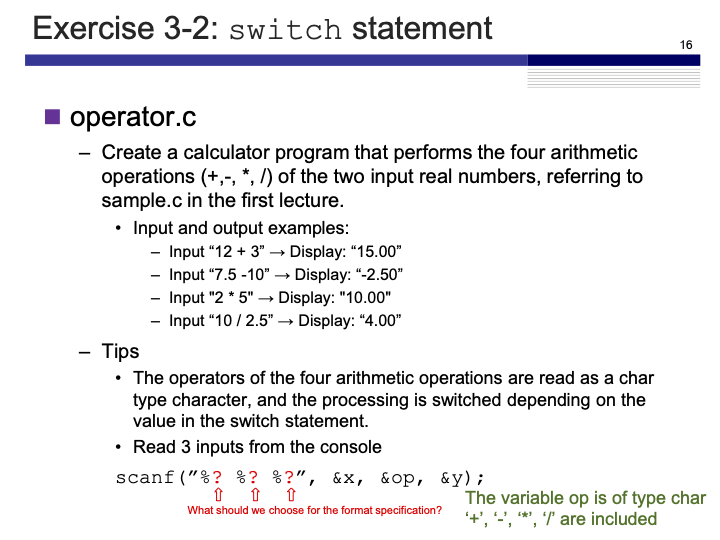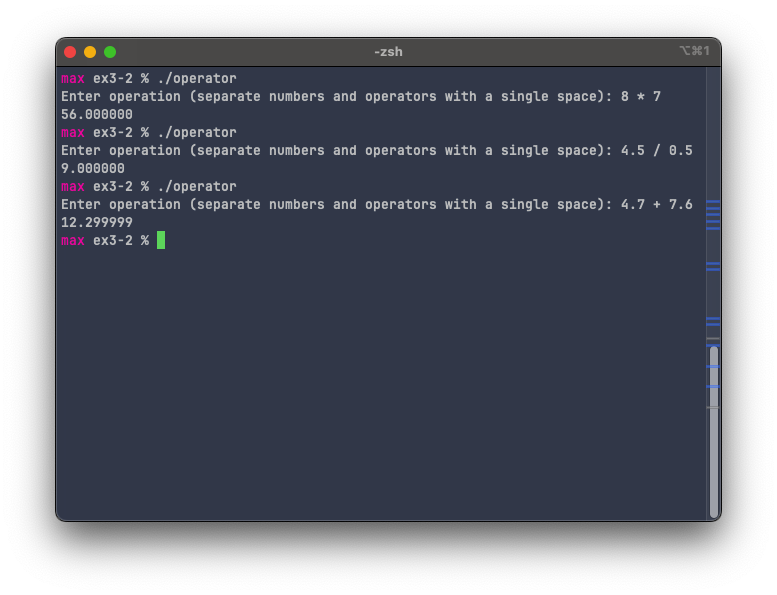Exercise 3-2: switch statement
Maximilian Fernaldy - C2TB1702

Exercise 3-2 introduces another way to deal with multiple possibilities: the switch statement. A switch statement is much faster than an if-else ladder and is more readable when there are many possibilities to the value of something.
To implement this in operator.c, we first need to identify which variable has multiple possible values. Since we are tasked to create a simple arithmetic calculator, it is obvious that the operator here is that variable. We need to create a switch for the operator, which has multiple cases: plus sign for addition, minus sign for subtraction, asterisk for multiplication and slash for division.
#include <stdio.h>
int main() {
float a = 0, b = 0;
char opr;
printf("Enter operation (separate numbers and operators with a single space): ");
scanf("%f %c %f", &a, &opr, &b);
switch (opr) {
case '+':
printf("%f\n", a + b);
break;
case '-':
printf("%f\n", a - b);
break;
case '*':
printf("%f\n", a * b);
break;
case '/':
printf("%f\n", a / b);
}
return 0;
}
We first initialize the variables a and b as float types (because the inputs are real numbers), and initialize the operator variable opr as a char type. Then, we scan the user input for the numbers and the operator. After that, we can return the result according to the operator from the user.
The compiled program works as follows:
